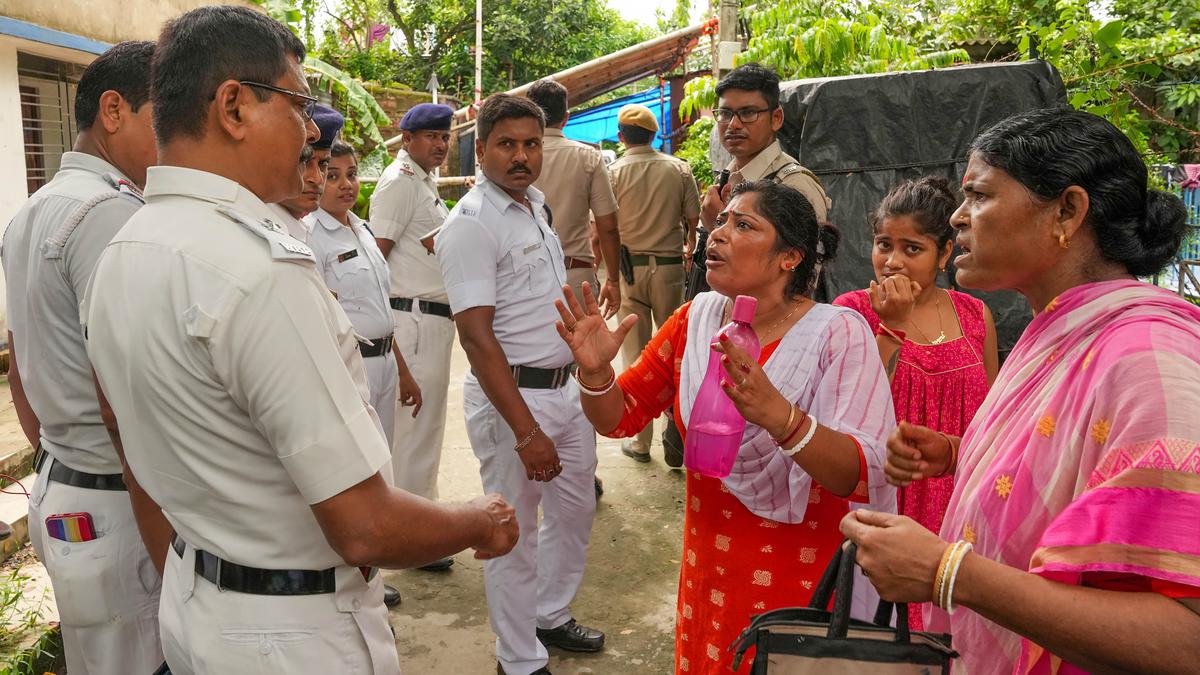
Bengal under TMC known for crimes, anti-national activities, appeasement: BJP
The Hindu
The BJP on July 8 attacked the Trinamool Congress government in West Bengal, alleging that the State under its rule has become a tragic example of violence in democracy
The BJP on July 8 attacked the Trinamool Congress (TMC) government in West Bengal, alleging that the State under its rule has become a tragic example of violence in democracy.
Hitting out at the TMC over violence during the panchayat elections, BJP spokesperson and Rajya Sabha member Sudhanshu Trivedi told reporters that the State used to be a centre of art, culture and science. Now, it is known for "crimes, anti-national activities and dangerous appeasement".
He alleged that the Chief Minister Mamata Banerjee-led government has been using criminals for violence during the elections by giving them protection.
Members of the BJP and the Left-Congress combine have been killed and such a situation has emerged that different factions of the TMC are attacking each other, Mr. Trivedi alleged.
Violence has been going on in Bengal for years. It is not only continuing but gradually rising, he said.
Taking a swipe at the BJP's critics, Mr. Trivedi said they cannot see these murders in their opposition to the party and Prime Minister Narendra Modi.
The situation in Bengal is a lot like in Bihar of the 1990s, Mr. Trivdei said, accusing the TMC of tainting the polls with blood. The State government's actions have been exposed through Constitutional means, he said.

“Writing, in general, is a very solitary process,” says Yauvanika Chopra, Associate Director at The New India Foundation (NIF), which, earlier this year, announced the 12th edition of its NIF Book Fellowships for research and scholarship about Indian history after Independence. While authors, in general, are built for it, it can still get very lonely, says Chopra, pointing out that the fellowship’s community support is as valuable as the monetary benefits it offers. “There is a solid community of NIF fellows, trustees, language experts, jury members, all of whom are incredibly competent,” she says. “They really help make authors feel supported from manuscript to publication, so you never feel like you’re struggling through isolation.”

Several principals of government and private schools in Delhi on Tuesday said the Directorate of Education (DoE) circular from a day earlier, directing schools to conduct classes in ‘hybrid’ mode, had caused confusion regarding day-to-day operations as they did not know how many students would return to school from Wednesday and how would teachers instruct in two modes — online and in person — at once. The DoE circular on Monday had also stated that the option to “exercise online mode of education, wherever available, shall vest with the students and their guardians”. Several schoolteachers also expressed confusion regarding the DoE order. A government schoolteacher said he was unsure of how to cope with the resumption of physical classes, given that the order directing government offices to ensure that 50% of the employees work from home is still in place. On Monday, the Commission for Air Quality Management in the National Capital Region and Adjoining Areas (CAQM) had, on the orders of the Supreme Court, directed schools in Delhi-NCR to shift classes to the hybrid mode, following which the DoE had issued the circular. The court had urged the Centre’s pollution watchdog to consider restarting physical classes due to many students missing out on the mid-day meals and lacking the necessary means to attend classes online. The CAQM had, on November 20, asked schools in Delhi-NCR to shift to the online mode of teaching.









